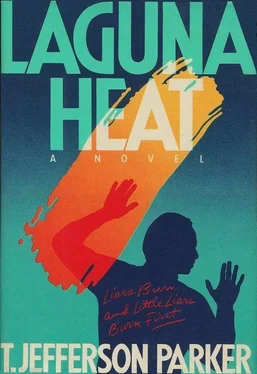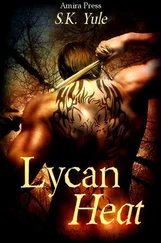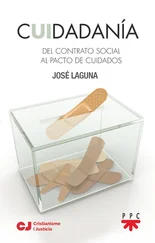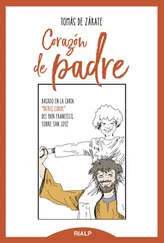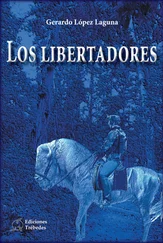He called his father. “Was it worth it, pop?”
“Tommy? It’s—”
“Quarter ’til three. Was it?”
“Was what? Have you been drinking?”
“A tad. Gotta tell me. Was the miracle worth the pain?” Shephard’s voice sounded as if it came from underwater.
A pause. “Tommy, go to sleep. I’ll talk to you when you’re sober.”
“And one more thing...” Shephard tried to gather his thoughts, but they seemed to be fraying like cut rope inside his head. “The pier. How come walking off the pier with nothing but rocks once a month? I’m talking clarification.”
“Tommy? Let me tell you something. Don’t look for the bad. Don’t play the dark notes, son, until they’re all you’ve got left to play. Forgive what you can’t change. Can you understand that? Now go to sleep. I’ll see you for lunch on Friday, all right?”
“Clarification.”
Wade hung up.
A few minutes later Shephard was asleep, relinquishing his dreams once again to the boy with the knife.
He pulled the Mustang off Laguna Canyon Road and parked under the willow tree. The coffee from his Thermos was hot, and the morning news was filled with money market advertisements and city council trivia. Across the yard he could see that his card had been removed from the chain-link fence, and that the sea lion was slouched like a giant slug against the side of its pen. Shephard’s head ached vengefully, hangover on top of concussion, but his mind was clear and uncluttered. He chewed four aspirins and waited for Jane Algernon.
Half an hour later he heard a door slam and she appeared on the porch. She shot a disdainful glance his way, then walked across the yard in front of him, stopping to pull the waders from the clothesline. She was dressed in a sweatshirt and shorts, and Shephard felt like he shouldn’t watch her step into the boots, but he did anyway. He took a hot gulp of coffee and stepped out of the car.
“Miss Algernon, delightful we meet again,” he said with cheer. She glared at him as she turned to a freezer beside the house and pulled out a bag. Her face looked haggard and sleepless. Shephard watched the fish slide like melted silver from the bag into a bucket at her feet. She took the bucket to a garden hose and rinsed off the sea lion’s breakfast. When she stepped into the pen the animal rushed to her side with a croak, raising its slick head to be stroked. She patted it and dropped a fish into its mouth. Like Cal without ears, he noted. “Fresh frozen?”
“Oh,” she said with a smile. He had never known a smile could be so damaging and beautiful at the same time. He felt impaled on it. “It’s the detective again. I used to enjoy these few moments alone, every morning, but not since he started coming here. What can I do for you, little man?”
“I wondered if you changed your mind about helping me. The handwriting samples I asked you for. The picture of your father, the business books. I want you to tell me about him. I thought that you might—”
“But I haven’t. And I won’t. And strange as it may seem, if you park in my driveway or come onto my property again, I’m going to call the police.” She dropped another fish, which was caught mid-air and mid-croak. The animal spun in self-satisfaction, slid into the pool, sped around it without visible effort, then slapped back out and stopped at her feet again. Head-first everywhere, he thought, like Pete Rose.
“Miss Algernon, I have reason to believe that—”
“He has reason to believe,” she told the beast. “He had no reason to believe before, but now he does. Did the detective find God last night?” She dangled a fish, and Shephard studied the length of her body, the rounded, lovely thighs above the rubber.
“Reason to believe that other people may be in danger from the man who killed your father,” he blurted quickly.
She shook her head and aimed the smile at him again. Looking at it, he felt loathsome, freakish. She studied him for what seemed an hour, then reached some kind of conclusion. She turned back to the animal, still dangling the fish.
“Now the detective is bluffing the witness,” she said. “But that’s okay, because really, he isn’t here.” She tossed the fish into the pool and the sea lion heaved after it. Shephard waited a long time for her attention to return to him, then began to wonder if indeed he were not really there. With each throb in his head, patience waned. Screw it, he thought.
“Not here? Yeah, I’m not here.” He was less aware of stepping across the yard to the garden hose than he was of simply watching himself do it. He watched as he picked up the nozzle, carried it to the pen fence, and hosed down the young woman inside. The water burst into shiny spray as it hit her, dazzling in the morning sun. “She lives in town somewhere. I don’t know her name, her age, or why she’s in danger. She might even be you,” he heard himself saying. She faced him throughout the soaking, arms at her sides, hair clinging to her face in wet strands, her face clenched in hatred, the sea lion croaking gleefully as he put his streamlined face into the bucket of fish she had just dropped.
He hooked the nozzle into the chain link when he was finished. “Your father lived the last days of his life in terror, I just found out. He knew what was going to happen, and it did. If he never told you about it, I guess I can understand why. Have a wonderful life, Miss Algernon.”
Back in the Mustang, he was pleased to find his coffee still warm.
Then, a sudden beating on the window beside his face. Through the glass her voice was muted but clear, as if on a telephone.
“Bastard! Open that door, you bastard!” A black wader thumped against the glass. Then her fists, small and pink, flattening not inches from his head. Her eyes were wide, her hair soaked and sticking to her face, her voice shrill and desperate. “Open that door, you bastard!” Her fists hit the window in thuds, like big drops of rain. Shephard stared through the glass at her, then pointed at the door lock, which was all the way up. She threw open the door and pounced, nails, teeth, fists pounding wildly — he heard them hitting the dash, the leather seats, even the horn once, which honked quickly and sent the sea lion into a frenzied croak — then a moment’s pause before a black wader blotted out the sunlight to his left and thwacked against his head with the sound of a mop hitting a floor. He was aware of his shirt tearing, a hot gouging in his ribs, and the repeated curse, “I hate you, I hate you, you little bastard!”
They spilled onto the lawn, where Jane, wader still flailing, found distinct advantage. Shephard covered up under elbows and hands, trying to keep the stitches intact. The wader slammed methodically into his ribs and head, punctuated by gasps and broken phrases. “You... bastard... get you... sonofa...” Shephard heard the sea lion clapping and croaking at the chance finally to be the spectator.
The blows began to slow and the words started to lose their fury. Her voice dissipated into tired panting, then a final grunt as she slammed the wader once more into his ribs, then let it fall to the ground. Still covering himself, he could hear her a few steps away, sobbing fast and shallow as if she were choking. He lowered an elbow for a look.
Her back was to him; she had her face in her hands. Her shoulders shook. The noisy sea lion looped his pen again, fired with excitement.
“Shut up, Buster,” she said. “Just shut up.”
Shephard plopped back into the car and poured some coffee into the plastic cup. The back of his head was sticky and his shirt blood-stained at the elbow. From a safe distance he offered Jane Algernon the coffee. She looked at him through a shock of matted brown hair, an expression not of victory or surrender, but relief. Brushing the hair away from her face, she shook her head. Shephard backed off and lit a cigarette.
Читать дальше
